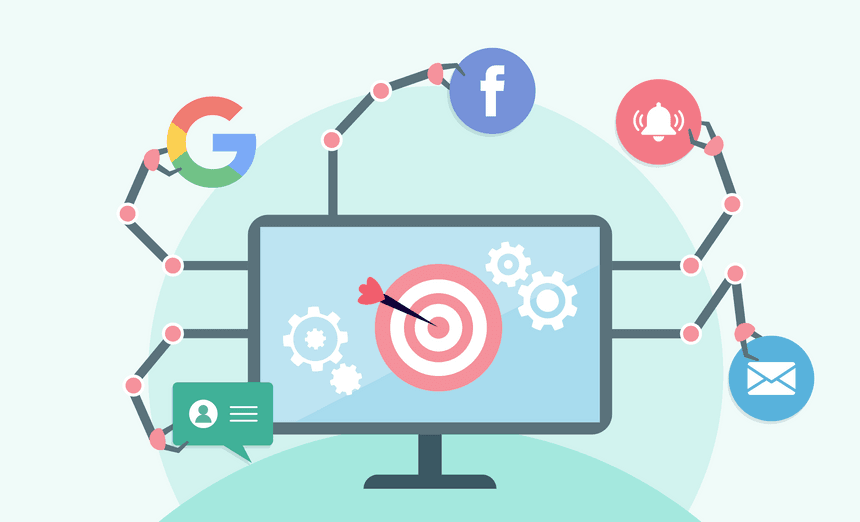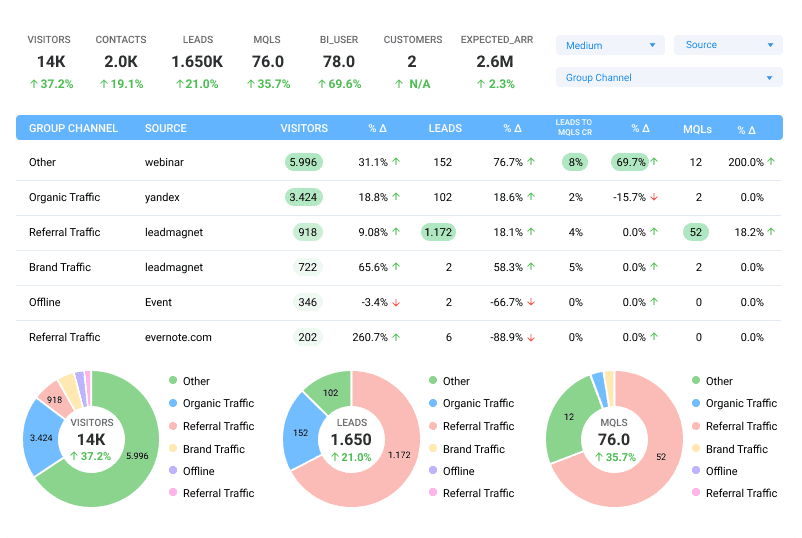In the realm of marketing, automating repetitive tasks using custom scripts is a game-changer.
This article explores how custom scripts can revolutionise marketing by tackling the menial and repetitive tasks that often consume valuable time. From email campaigns to data analysis, marketers can delegate these chores to machines, freeing up their creative energy for strategic endeavours.
Whether you’re a seasoned marketer or just starting out, keep reading to find out more about the tools needed to boost efficiency and success in your marketing efforts.
What is Task Automation?
Task automation is the strategic employment of software or automation scripts to tackle monotonous, repetitive tasks that are typically time-consuming when executed manually. In the fast-paced world of marketing, automation emerges as a vital tool for reclaiming valuable time and resources.
By harnessing the power of marketing automation, businesses can offload routine chores like data entry, email marketing, and report generation to specialised scripts or software programs. These automated solutions replicate human actions, enabling them to perform tasks with precision and consistency, while also reducing the risk of errors that can occur through manual execution.
The true beauty of task agency automation lies in its ability to liberate marketing professionals from the shackles of mundane operations, granting them the freedom to channel their creative and strategic energies where they matter most. It not only enhances productivity but also empowers marketers to focus on innovation, campaign optimization, and customer engagement, ultimately driving success in the fiercely competitive marketing landscape.
8 Common Types of Tasks Can be Automated
In the fast-paced world of marketing, time is a precious commodity, and efficiency is paramount. Fortunately, automation offers a solution to the time-consuming, repetitive tasks that can bog down marketing professionals.
In this section, we will explore eight common types of tasks that can be automated to enhance productivity, accuracy, and overall marketing effectiveness.
1. Manual Data Entry
Manual data entry is a laborious and error-prone task. Automation scripts can swiftly and accurately handle this chore, freeing up marketers from the tedium of inputting data. Whether it’s customer information, sales figures, or campaign metrics, automation ensures data accuracy while saving valuable time.
2. Ad Campaign Management
Efficient ad campaign management is crucial for a successful marketing strategy. Automation can help streamline the scheduling, optimisation, and monitoring of your ad campaigns. It allows for real-time adjustments to ensure your ads reach the right audience at the right time, maximising their impact.
3. Ad Copy Customisation
Personalisation is key in today’s marketing landscape. Automation tools can customise ad copy for various audience segments or products, tailoring messaging to specific demographics. This ensures that your ads resonate with your target audience, increasing engagement and conversion rates.
4. Paid Advertisement Bidding
Managing bids for paid advertisements can be a complex and time-consuming task. Automation algorithms can analyse real-time performance data and adjust your bids accordingly to optimise your ad spend. This ensures that you get the best possible return on investment.
5. Email Marketing
Email marketing is a cornerstone of modern marketing strategies. Automation can handle various aspects of email campaigns, from sending personalised messages to tracking recipient engagement and responses. This not only saves time but also ensures that your email marketing efforts are more effective.
6. Data Reporting
Data reporting is essential for making informed marketing decisions. Automation can generate comprehensive reports automatically, consolidating data from various sources. This eliminates the need for manual data compilation and analysis, allowing marketers to focus on interpreting insights and taking action.
7. Social Media Management
Maintaining a strong social media presence across multiple platforms is a demanding task. Automation tools can simplify this process by scheduling posts, managing content calendars, and monitoring engagement. Consistent and timely updates can enhance your brand’s visibility and engagement with your audience.
8. Google Business Review Replies
Online reputation management is critical for businesses. Automation can help you efficiently respond to customer reviews on Google Business. By automating responses, you can maintain a positive online image and address customer feedback promptly.
Incorporating automation into your marketing strategy empowers you to work smarter, not harder. It allows you to focus your time and creativity on strategic tasks, campaign innovation, and customer engagement, ultimately driving success in the competitive marketing landscape. The following sections will delve deeper into each of these automation opportunities, providing insights and practical tips for implementation.
How to Automate Repetitive Tasks in Agencies
In the fiercely competitive landscape of marketing agencies, efficiency and innovation are paramount. Agencies can gain a significant edge over their competitors by harnessing the power of custom automation scripts to automate tedious and time-consuming tasks. Custom automation empowers agencies to streamline workflows, reduce human errors, and deliver faster results to clients.
By automating routine processes such as data entry, report generation, and social media posting, agencies can allocate their resources more strategically. This not only enhances productivity but also frees up creative talent to focus on campaign optimisation, content creation, and client communication – or in other words: the stuff that really matters.
Furthermore, custom automation ensures consistency in tasks like ad campaign management and email marketing, improving the quality of service offered to clients. Agencies that embrace automation can provide faster turnaround times, better ROI, and more competitive pricing, ultimately positioning themselves as industry leaders in a rapidly evolving marketing landscape.
6 Top Benefits of Automating Repetitive Tasks
Incorporating automation into your workflow isn’t just a modern convenience—it’s a strategic move that yields numerous advantages. Let’s delve into the five key benefits of automating repetitive tasks:
1. Increased Efficiency:
Automation accelerates task execution by reducing manual intervention. Complex processes that once took hours or even days can now be completed in mere minutes. This heightened efficiency translates into faster project delivery, shorter response times, and a more agile business operation.
2. Time Savings:
By automating repetitive tasks, individuals can redirect their energy and expertise toward higher-value activities. This not only fosters creativity and innovation but also allows teams to tackle more strategic projects. Ultimately, time savings contribute to improved work-life balance and reduced burnout.
3. Cost Savings:
Automation reduces labour costs associated with manual tasks. Fewer man-hours are required, and human error is minimised, resulting in substantial cost savings over time. Companies can allocate resources to areas that drive growth, innovation, and profitability.
4. Improved Accuracy:
Automation scripts execute tasks with consistency and precision, minimising the risk of human error. This improved accuracy is particularly vital in data entry, report generation, and customer interactions. Reliable results enhance the quality of deliverables and client satisfaction.
5. High Customer Retention & Satisfaction:
Efficient, error-free operations enhance the customer experience. Timely responses to inquiries, personalised marketing, and consistent service delivery impress clients and foster trust. Satisfied customers are more likely to return, refer others, and become loyal advocates for your brand.
6. Unique Competitive Advantage:
Agencies that embrace automation gain a competitive edge. They can offer quicker turnaround times, more competitive pricing, and innovative solutions. Automation sets businesses apart in a crowded marketplace, positioning them as forward-thinking industry leaders.
Incorporating automation isn’t just about streamlining processes; it’s about elevating your entire operation. By harnessing the benefits of automation, you can propel your business to new heights of efficiency, accuracy, and customer satisfaction while gaining a distinct advantage in today’s competitive landscape.
Who Can Benefit From Automating Repetitive Tasks?
The advantages of automating repetitive tasks extend far and wide, benefiting various types of businesses and organisations seeking to enhance their productivity and competitiveness.
1. Marketing Agencies:
Marketing agencies deal with an array of repetitive tasks, from ad campaign management to social media posting.
Automating these processes not only boosts efficiency but also allows agencies to provide clients with faster results, improved campaign precision, and competitive pricing. This, in turn, strengthens client relationships and sets agencies apart in the competitive marketing landscape.
2. Startups:
Startups often face resource constraints and time-sensitive demands. Automating repetitive tasks enables them to operate leaner, maximise their limited resources, and accelerate growth.
This can be particularly crucial when launching products, managing customer inquiries, and handling administrative functions.
3. Small and Medium-size Enterprises (SMEs):
SMEs typically operate with smaller teams and budgets. Automation is a game-changer for them, as it reduces operational costs, enhances workflow efficiency, and improves customer service.
Automating customer relationship management (CRM), accounting, and inventory management can significantly benefit SMEs, helping them compete with larger counterparts.
4. Data Analytics Companies:
Data analytics companies thrive on data processing and analysis. Automation is instrumental in handling data extraction, cleansing, and reporting.
It not only accelerates data-driven insights but also minimises errors, ensuring that analytical results are reliable and actionable. In essence, any organisation seeking to optimise its operations, reduce costs, enhance accuracy, and gain a competitive edge can benefit from automating repetitive tasks.
Automation isn’t confined to specific industries; it’s a versatile tool that empowers businesses of all sizes and types to achieve more with less, ultimately driving growth and success.
Acuto Can Build Your First Automation Script
At Acuto, we are firm believers in unleashing the full potential of agency data. Our expertise lies in crafting custom automation scripts for businesses, freeing up valuable time otherwise spent on mundane tasks and allowing you to focus on what truly matters.
Our automation solutions span across various web apps, including Google Ads, Google Sheets, Meta for Developers, Authoritas, and more. Through close collaboration with your team, we develop tailored automation solutions that align precisely with your business needs.
Partnering with Acuto empowers you to launch promotion campaigns effortlessly using Google Ads scripts. Our team comprises experienced developers and data engineers well-versed in digital marketing and paid media. This unique skill set enables us to deliver robust automation scripts that handle the job efficiently, relieving you of the burden.
Choose Acuto for our proficiency in automation, saving you time, effort, and costs. Let us handle the technical intricacies while you focus on the tasks that require your expertise to achieve your business goals.
Examples of Automating Repetitive Tasks
To give you a better understanding of what we offer marketing agencies, we’ve summarised two case studies below:
#1. Automated Budget Pacing
We transformed Klientboost’s budget management system, replacing manual processes with real-time automated tracking. Initially relying on separate documents in Google Workspace for each client, their system lacked an agency-wide budget overview and spend pacing. With over 100 clients, this approach was time-consuming and risked budget discrepancies.
Our solution integrated real-time cost data with campaign budgets, leveraging SQL queries to efficiently combine the data from a data warehouse.
The result was a comprehensive report and dashboard, providing account and team-specific spend and budget insights, ensuring quick pacing checks and enhancing overall budget management efficiency for Klientboost.
#2. Google Sheets Automation
Sitruna had connected all of their Amazon data to a BigQuery data warehouse, but was struggling to enable their team to use it easily and often to unlock the type of analysis they needed.
So we built them a Google Sheets add-on that lets anyone query any data without writing a single line of SQL. With a few simple dropdowns, it lets you choose what report you want, what columns you need, and any filters. In the backend, it takes the user inputs and turns them into an SQL query, which it then pulls from BigQuery and returns in a Google Sheet.
Key Takeaways
In the rapidly evolving landscape of marketing and beyond, automation is a game-changer. It empowers businesses and agencies to enhance efficiency, reduce costs, and elevate their competitive edge. Here are the key takeaways from this article:
- Automation’s Power: Custom automation scripts can revolutionise marketing by streamlining repetitive tasks, allowing professionals to focus on innovation and strategy.
- Common Tasks for Automation: Tasks like data entry, ad campaign management, and email marketing are prime candidates for automation, saving time and improving precision.
- Benefits of Automation: Automation offers increased efficiency, time and cost savings, improved accuracy, higher customer satisfaction, and a unique competitive advantage.
- Wide Applicability: Businesses of all sizes and industries, from marketing agencies to startups and SMEs, can benefit from automating repetitive tasks.
By embracing automation and harnessing its potential, organisations can work smarter, not harder, and position themselves for success in a rapidly changing business environment. Efficiency, accuracy, and customer satisfaction will be their competitive advantage in the digital age.





